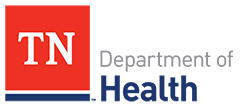Tennessee Department of Health
 Nashville, TN – The Tennessee Department of Health is working with the United States Department of Agriculture to help prevent rabies by distributing oral rabies vaccine for wild raccoons along Tennessee’s borders with Alabama, Georgia, North Carolina and Virginia.
Nashville, TN – The Tennessee Department of Health is working with the United States Department of Agriculture to help prevent rabies by distributing oral rabies vaccine for wild raccoons along Tennessee’s borders with Alabama, Georgia, North Carolina and Virginia.
The annual baiting program administered by USDA’s Animal and Plant Health Inspection Service, Wildlife Services, will begin in Tennessee in October, 2018.

“Control of raccoon rabies is vital to public health for people,” said TDH Commissioner John Dreyzehner, MD, MPH. “We are pleased to be part of this important and effective program to reduce rabies in wildlife, which helps prevent transmission to people, pets and livestock.”
Vaccine packets coated with fishmeal will be distributed by airplane and helicopter throughout a 16-county area in Tennessee. Distribution of vaccine will target rural areas where raccoons are likely to eat. The 2018 bait zone will include portions of Bradley County, Carter County, Cocke County, Greene County, Hamilton County, Hawkins County, Johnson County, Marion County, McMinn County, Meigs County, Monroe County, Polk County, Sequatchie County, Sullivan County, Unicoi County and Washington County.
“Rabies is most common in wild animals in Tennessee, and it poses a risk to people and domestic animals that come into contact with wildlife,” said TDH Medical Epidemiologist Mary-Margaret Fill, MD. “It’s important for pet owners to make sure rabies vaccinations are current for dogs and cats to ensure their health and safety, and to help provide a barrier between rabies in wild animals and humans.”
Rabies, once disease develops, is almost always fatal. However, it is completely preventable if vaccine is provided prior to or soon after exposure.
This is the 17th year Tennessee has participated in baiting with rabies vaccine to slow and possibly halt the spread of raccoon rabies. There have been two cases of raccoon variant rabies in eastern Tennessee this year. Since raccoon rabies was first detected in Tennessee in 2003, the disease has not spread as rapidly here as has been documented in other areas of the United States.
Although the vaccine products are safe, the USDA Wildlife Services program has issued these precautions:
- If you or your pet finds a vaccine bait package, confine your pet and look for other baits in the area. Wear gloves or use a towel and toss baits into a wooded or fencerow area. These baits should be removed from where your pet could easily eat them. Eating the baits won’t harm your pet, but consuming several baits might upset your pet’s stomach.
- Don’t try to remove an oral rabies vaccine packet from your pet’s mouth, as you could be bitten.
- Wear gloves or use a towel when you pick up bait. While there is no harm in touching undamaged baits, they have a strong fishmeal smell. Wash your hands thoroughly with soap and water if there is any chance the vaccine packet has been ruptured.
- Instruct children to leave baits alone.
- A warning label on each bait advises people not to touch the bait, and contains the rabies information line telephone number.
For more information on rabies prevention or the oral rabies vaccine program, call the USDA Wildlife Services toll-free rabies line at 1.866.487.3297 or the Tennessee Department of Health at 1.615.741.7247.
The Tennessee Department of Health urges people to enjoy wild animals such as raccoons, skunks, foxes and bats from a distance. The Centers for Disease Control and Prevention has a website to help educate children about rabies.
Visit the site at www.cdc.gov/rabiesandkids/.
Tennessee Department of Health
The mission of the Tennessee Department of Health is to protect, promote and improve the health and prosperity of people in Tennessee. TDH has facilities in all 95 counties and provides direct services for more than one in five Tennesseans annually as well as indirect services for everyone in the state, including emergency response to health threats, licensure of health professionals, regulation of health care facilities and inspection of food service establishments.
Learn more about TDH services and programs at www.tn.gov/health.



